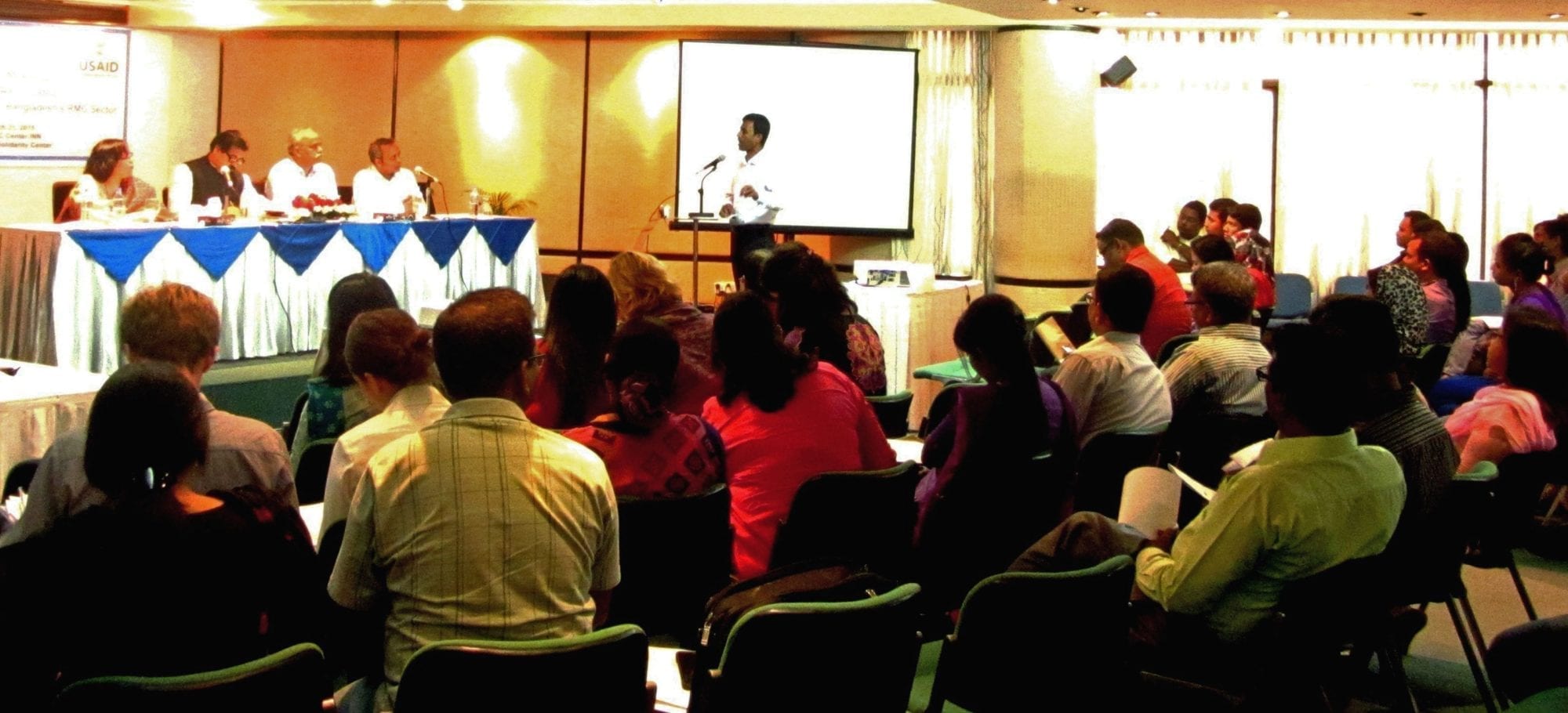After workers form a union in Bangladesh’s garment sector, the government often refuses to register the new union for arbitrary or unfair reasons, said trade union leaders and workers Tuesday at a high-level forum organized by the Solidarity Center in Dhaka, the capital.
“If workers fulfill all the requirements of union registration, they should not have their unions rejected,” said Chandon Kumar De, acting general secretary of Bangladesh Independent Garment Workers Union Federation (BIGUF).
Chandon was among six workers and union leaders testifying at the forum, which drew 60 participants, including representatives from non-governmental and intergovernmental organizations, trade unions, and representatives of foreign governments.
Despite garment workers’ success in establishing unions in the past year, workers and union organizers have been harassed, threatened and some physically attacked when trying to exercise their rights to be paid what they are owed and to work in a safer workplace. More than 80 factories have been closed or the unions dismantled in the past two years, and more than 100 unions that filed for registration have been rejected by the government. Government rejections of unions that applied for registration increased from 19 percent in 2013 to 56 percent so far this year, according to data the Solidarity Center compiled.
Several workers who spoke described how, after filing to register their new unions, government officials visit the workplace and ask workers in the presence of their employer whether they joined a union. Fearful of losing their jobs, the workers deny participation in union activities, and the government declares the union cannot be registered for lack of awareness. Others described how their unions were rejected by the government because management refused to allow officials into a factory to investigate, regardless of whether the union fulfilled all legal registration requirements or not.
Workers also described freedom of association violations such as mass terminations, violence and threats to discourage union activity.
“Workers risk a lot when they organize,” Chandon said. “They are threatened and sometimes beat up by management and local goons. When we file unfair labor practices with the government, there is rarely action taken.”
A member of Parliament and leading labor academics presented recommendations to improve freedom of association and the union registration process. The recommendations in part urge government officials to cease interviewing workers about union activity in the presence of management and also to provide unions the opportunity to address any potential issues with the registration application early in the process.
“There needs to be a clear, consistent and transparent union registration process,” said Bangladesh Institute for Labor Studies Executive Director Syed Sultan Uddin Ahmed. “We need mechanisms where workers can swiftly get the justice they deserve when their rights are violated. These need to investigate, address and penalize employers for unfair labor practices to end the culture of impunity that surrounds employer resistance to legally protected union activity.”
Following the Rana Plaza collapse in April 2013 and other high-profile catastrophes at Bangladesh garment factories, the government showed signs of recognizing worker rights and its own labor laws, allowing workers to form unions. But last year, garment workers increasingly faced barriers to joining a union, including physical violence and employer intimidation at the workplace in addition to issues in the government’s union registration process.

